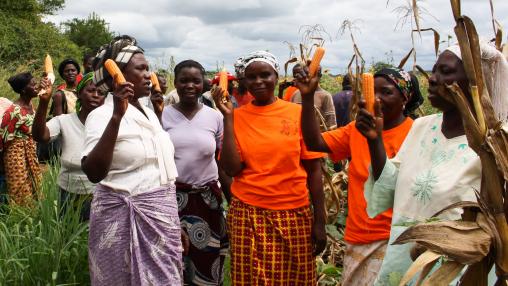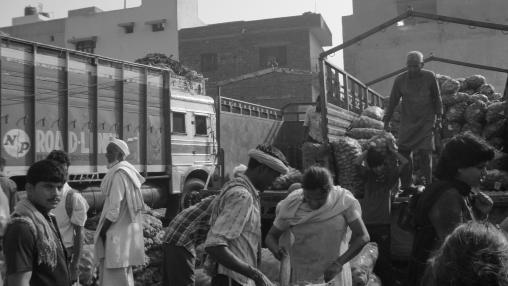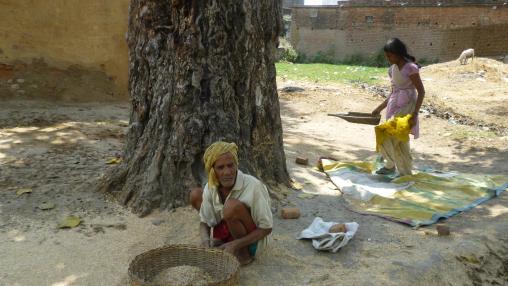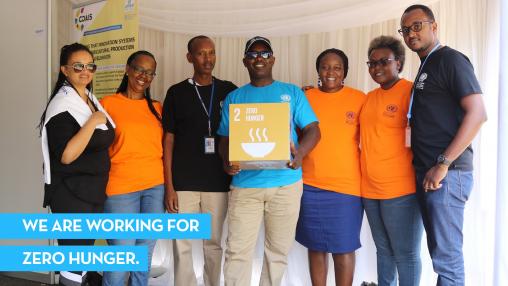
The Doha Round and Food Security
The WTO Doha Development Round trade negotiations have been at an impasse since their launch in 2001, and have gotten particularly bogged down over the difficult technical and political aspects of agricultural trade reform. Further complicating the talks is the fact that the global economic, trade, and geopolitical context has changed significantly since the Doha Round was launched.

Reducing Micronutrient Deficiency with Biofortification
Micronutrient malnutrition is caused by a lack of vitamins and minerals in the diet. Poor people are particularly vulnerable to micronutrient malnutrition, as their diets consist mainly of grains and don’t include many vital fruits, vegetables or animal products.

Pool Rules: Working Together to Protect Livelihoods
When a natural disaster strikes, it takes its toll in lives, homes, and entire cities. What’s more, the costs of reconstruction are not strictly financial—it can also drain other resources geared toward long-term development outcomes such as capacity building, and food and nutrition security. Despite the outpouring of financial aid that often follows major catastrophes, the slow and unreliable funneling of those funds does little to help those directly affected and, in fact, hurts long-term development by redirecting resources from effective programs.

Protecting the Poor Through Higher Food Prices?
High food prices affect poor populations in a variety of ways. While households that only consume food suffer as a result of rising food prices, households that also produce food can actually benefit from price increases. But there is another, less recognized avenue through which high food prices can impact the poor: rural wages. The lion's share of the world's poor relies on agricultural jobs to make a living; whether or not agricultural wages increase as a result of rising food prices therefore has significant implications for how those price increases will help or hurt.

Transforming Small Farms from Subsistence to Profit
As the global population continues to grow and become more urbanized, smallholder farmers will play a critical role in feeding the world. Despite their importance to global food security, however, these farmers face daunting challenges in the form of climate change, price volatility, limited access to credit and insurance, and inadequate access to nutritious food. And addressing these challenges effectively is complicated even further by the fact that small farmers have widely varying needs, advantages, and abilities.

ReSAKSS-Africa Announces Enhanced Website
ReSAKSS-Africa (Regional Strategic Analysis and Knowledge Support System) website is now ready with enhanced features to track progress in implementing the Comprehensive Africa Agriculture Development Programme (CAADP), including the target of allocating 10 percent of national budgets to agriculture.

EU Moves One Step Closer to a Lower Biofuel Mandate
The European Union could be on the road to more stringent biofuel regulations. In a hard-won compromise, the European Parliament’s Environmental (ENVI) Committee on July 11 voted to cap the transportation industry’s use of first-generation biofuels at 5.5% and to require reporting of the indirect land use changes (ILUC) caused by biofuel production. The vote also calls for countries and suppliers to promote the use of alternative biofuel sources, such as algae and straw.

Good Reasons for Low Emissions Development Strategies (LEDS) Research
Cross-posted from IFPRI.org and Tim Thomas' Much Ado About Something blog
By IFPRI Senior Research Fellow Alex De Pinto

Updated: Will India's National Food Security Bill Help or Hurt?
Last week, India’s executive branch passed the historic National Food Security Bill (NFSB), an act that will dramatically increase the number of people who receive food subsidies from the government. While India’s existing food distribution system, the Targeted Public Distribution System (TPDS), is already enormous, the NFSB proposes to increase coverage to 75% of India’s rural population and 50% of the urban population – a whopping 800 million people.

Public Health Experts Take On UN’s Zero Hunger Challenge
A new initiative, the Community for Zero Hunger, was launched this week. It will identify the greatest gaps that remain in reducing hunger and malnutrition, and leverage the private sector to help fill those gaps at scale.